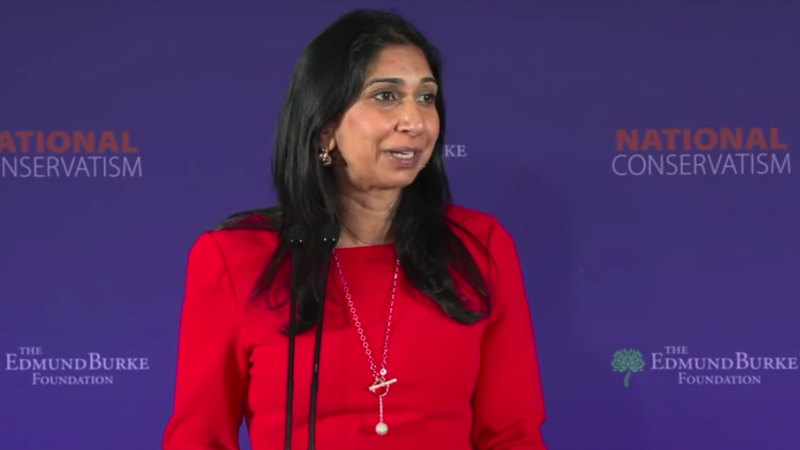It seems the Tories’ tendency to stoke up culture wars is starting to backfire.

Amid all the urgent problems facing the country, the Tories remain intent on trying to whip up furore and win support through aggressive assaults on so-called culture wars.
The Home Secretary Suella Braverman famously pledged to tackle the ‘tofu-eating wokerati.’ In September, as she ordered a probe into police impartiality, Braverman said: “People want officers on streets not policing pronouns.”
The Prime Minister has been doubling down on such narrative. At the Conservative Party conference, he said: “We shouldn’t get bullied into believing that people can be any sex they want to be – they can’t. A man is a man and a woman is a woman. That’s just common sense.”
Well now it seems the Tories’ seeming obsession with stoking up culture wars is starting to backfire.
New research by the King’s College London (KCL) and Ipsos UK, found that more than half of the British public believe that politicians are using culture wars as a deliberate distraction from other ‘important’ issues. Around two-thirds feel political figures are inventing or exaggerating culture wars as a political tactic – up from around four in 10 (44%) in 2020. While just one in ten voters say politicians who talk about divisions over cultural issues genuinely believe it is an important topic.
The study surveyed 3,717 people on their thoughts on culture wars in politics. It found that with the general election approaching, the top issues which would determine people’s votes, are inflation, the cost of living, the NHS, and social care. Meanwhile, transgender and free speech fared as the least pressing issues among voters, with just 1 percent saying such topics would decide their votes.
In regards to the term ‘woke,’ 42 percent of the public would consider it insulting to be described as ‘woke.’ This marks a 24 percent increase since 2020. Just over a quarter of people believed the woke branding is a compliment.
Professor Bobby Duffy, director of the Policy Institute at King’s College London, says public opinion appears to be “swinging against” the use of identity divisions.
“The speed and scale of the UK’s adoption of ‘culture war’ issues and rhetoric in our media and politics has been one of the key trends of the last few years, and it has gone hand-in-hand with big shifts in public awareness and opinion,” said Duffy.
He continued that “one of the biggest shifts being the increase in the public’s perception that politicians are inventing or exaggerating culture wars as a political tactic.”
“The evidence suggests it may not be a particularly successful approach to an election, as tiny minorities pick out culture war-related issues as important to how they’ll vote,” he added.
Gabrielle Pickard-Whitehead is a contributing editor to Left Foot Forward
Left Foot Forward doesn't have the backing of big business or billionaires. We rely on the kind and generous support of ordinary people like you.
You can support hard-hitting journalism that holds the right to account, provides a forum for debate among progressives, and covers the stories the rest of the media ignore. Donate today.



